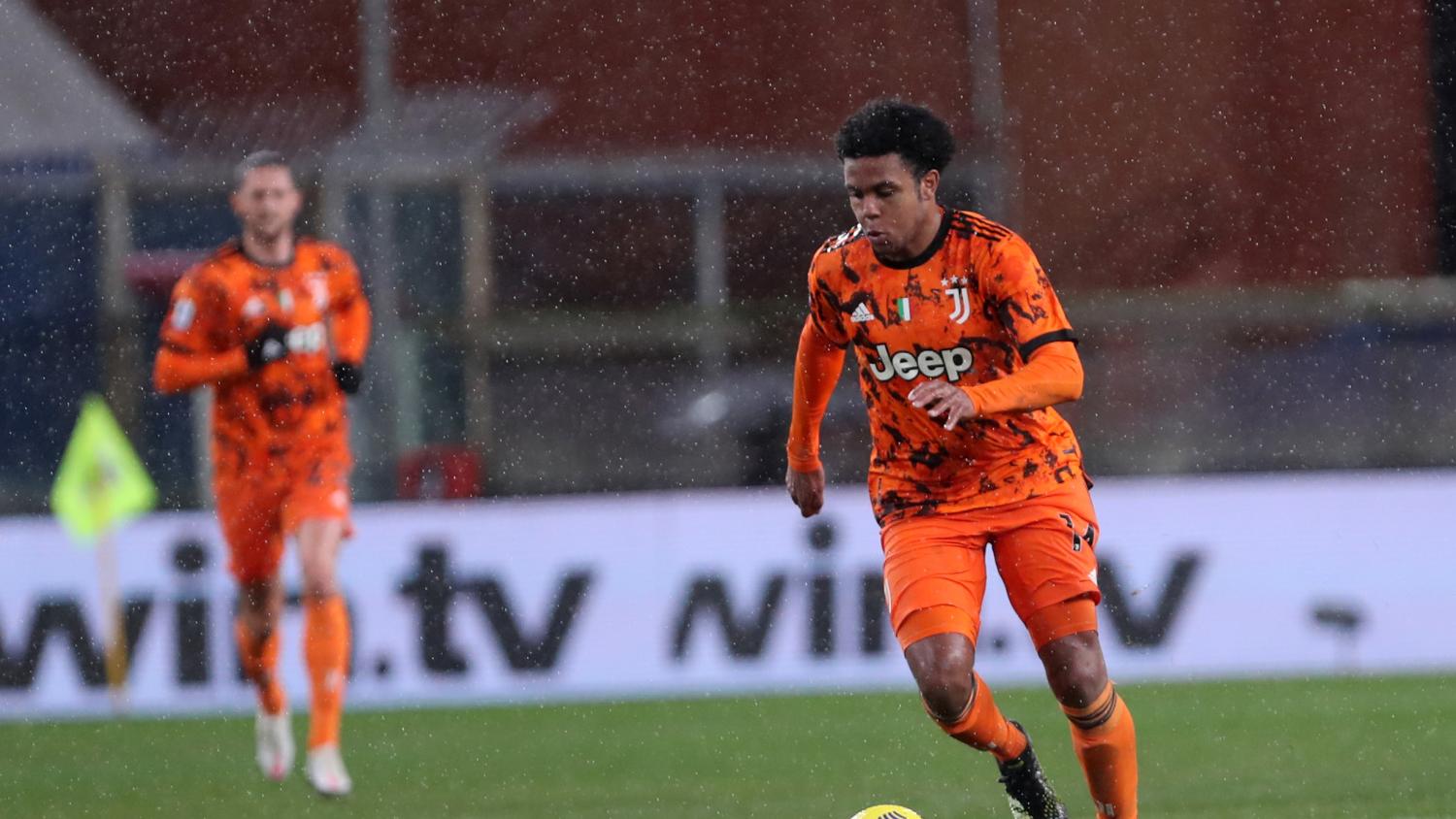On Wednesday, Juventus began its knockout campaign in the Champions League against FC Porto, a 2-1 defeat. With some big names such as Paulo Dybala and Juan Cuadrado limited for the Bianconeri, it was a big stage for young American Weston McKennie to make his mark in the competition.
Juventus manager Andrea Pirlo utilized McKennie in a complex midfield role, with rotating positions between attacking and defensive phases of the game. It is a testament to McKennie's versatility on the pitch and his willingness to be involved no matter the positional expectation.
Without the ball, Juve would drop into a 4-4-2, with McKennie’s job being to cover ground in the wide areas and provide protection ahead of his left back, Alex Sandro. When the Turin side regained possession, the shape morphed into a 4-3-3, with McKennie shifting into an advanced central area just beneath the attacking front three. This allowed for space in the wide areas for the fullbacks to get forward in an attempt to overload the attacking wide spaces.
Unfortunately for Juventus, a sloppy giveaway from Rodrigo Bentancur barely a minute into the game would gift the Portuguese side a goal.
Now Porto could sit back, absorb pressure and make it difficult for Juventus to create anything of substance. McKennie’s involvement following the goal was pretty minimal; in possession the American was unable to produce any meaningful contribution, while he could be partially to blame for Porto’s second goal due to a slow recovery (although this would be an extremely harsh assessment).
Pirlo was searching for an attacking spark and replaced McKennie in the 63rd minute, opting for the goal-scoring prowess of Álvaro Morata as they searched for a coveted away goal to claw back into the tie.
Although the American’s night ended abruptly, the real question on everyone’s mind is: What are the implications for McKennie’s role with the USMNT? His positional versatility has never been in doubt, and Wednesday proved that Andrea Pirlo had faith in McKennie to execute his elaborate transitional role. Unsurprisingly, this is a positive; McKennie is intelligent and willing enough to execute in such situations. He will undoubtedly continue to be used in a variety of positions for the remainder of his career.
One drawback to his performance was his lack of an impact on Juve’s attack. He was entrusted in a creative central role, yet was a ghost for the majority of his 63 minutes of play, unable to create much of anything when the Porto defense shrunk around him.
McKennie was not alone; many of Juve’s creative players drew big blanks. This includes talisman striker Criatiano Ronaldo, who was sloppy throughout and was dispossessed easily on numerous occasions.
More than anything, the game was a sign that McKennie’s strongest spot on the field is still likely in defensive midfield or as a box-to-box guy, due to his incredible engine and willingness to help the team. For the USMNT, this will not be so much of an issue with Christian Pulisic, Gio Reyna and others leading a robust generation of attacking options.
The USMNT’s next game will take place against Northern Ireland at 1 p.m. ET on March 28 in Belfast, meaning we may see a lineup of the European-based players within the USMNT pool. Regardless of his performance on Wednesday, McKennie getting quality minutes during a Champions League knockout game can only be a good sign for the Red, White and Blue going forward.

 Home
Home
